AMSTERDAM 🇳🇱: Freedom, Engineered [Episode 4.0]
Show notes and track listing from Episode 4.0.
CORNERSTONE EPISODES
9/29/202521 min read
Amsterdam doesn’t protect you—it dares you.
The city hands you plenty of rope, then watches to see if you can keep your balance in all that freedom.
This episode is about boundaries, momentum, and why Amsterdam can feel like the most honest playground in the world.
THANK YOU
Dan, Danny, Joshua, Laurens, Konomi, Marciano, Mimmy, Rolf — for your time, your thoughts, your voices (and for your efforts!).
And to the artists below for helping me tell these Amsterdam stories. I learned that there’s a lot of Dutch music, or at least music from Dutch artists, that I really like!
TRACK LIST (in order)
Fantastica Chromatica (Jan Pieterszoon Sweelinck)
De Winter Was Lang (Willeke Alberti)
De Diepte (S10)
Als Ze Er Niet Is (De Dijk)
Lonely (Yellow Claw, Weird Genius, Novia Bachmid)
Boom (Tiesto & Sevenn)
Take Over Control (Afrojack ft. Eva Simons)
Zoete Inval (Extince feat. Murth The Man-O-Script, Krewcial, Skate The Great, Yukkie B., Brainpower, Goldy & Scuz)
Policeman (Eva Simons, Konshens)
Satisfya (Imran Khan)
Have You Ever Been Mellow? (Party Animals)
Kid’s Allright (Bettie Serveert)
Toke and Smoke (Ray Fuego)
Het is Still in Amsterdam (Ramses Shaffy & Nieuw Amsterdams Klarinet Kwartet)
Up the Modern World (The Bohemes)
Animals (Martin Garrix)
Drank & Drugs (Lil Kleine & Ronnie Flex)
On My Mind (Don Diablo)
Noord Africano (3Robi, Simba LaRue, YassineBeats)
Santa Lucia by Night (George Baker)
Geef Mij Maar Amsterdam (Johnny Jordaan)
Sexy Als Ik Dans (Nielsen)
Take it All (Yellow Claw)
Little Green Bag (George Baker)
Door Merg & Brain (Brainpower)
Kande (Cho ft. LaRouge)
Streetwalker (Jan Akkerman)
Terwijl Jullie Nog Bij Me Zijn (Ruben Annink & Ali B)
Origineel Amsterdams (Osdorp Posse)
Losing My Religion (R.E.M.)**
Zij Gelooft en Mij (Andre Hazes)
Apollo (Hardwell & Amba Shepherd)
In and Out of Love (Armin van Buuren & Sharon den Adel)
Aan de Amsterdamse Grachten (Wim Sonnenveld)
J.O.S. Days (The Nits)
**I am aware R.E.M. is not Dutch, but they were a small part of the story 🙂
(Full transcript below photos)
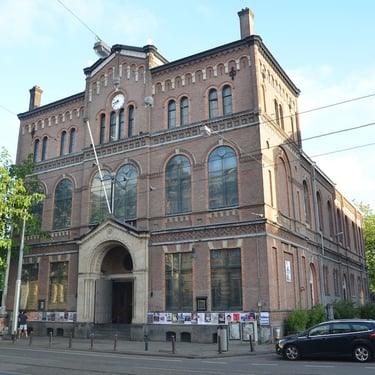
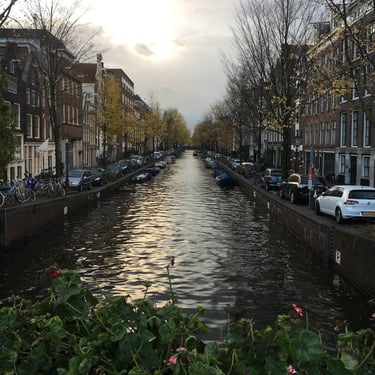
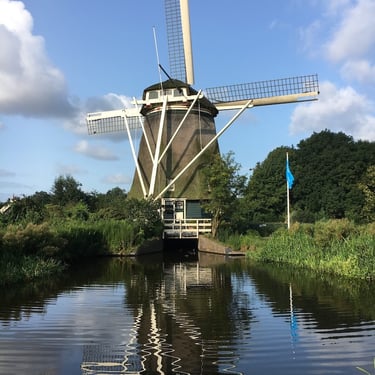
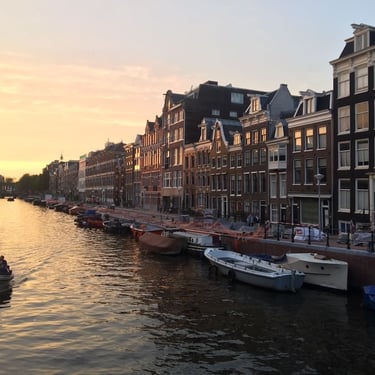
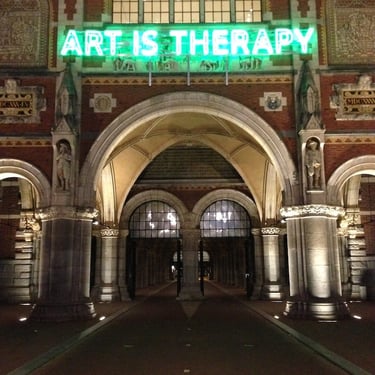

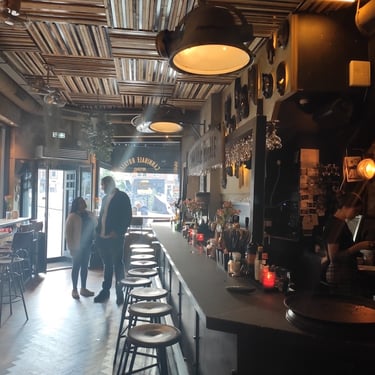
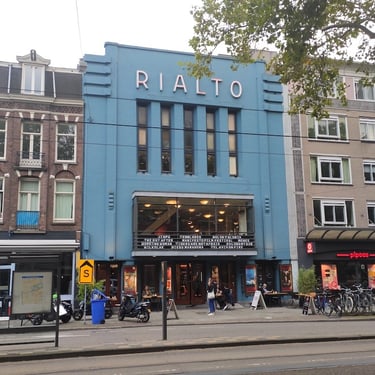
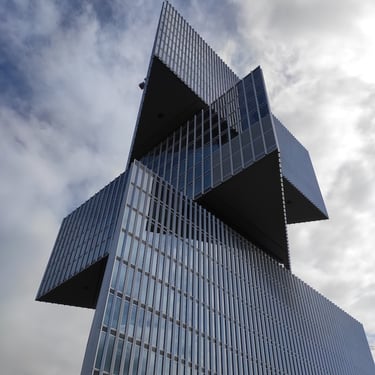
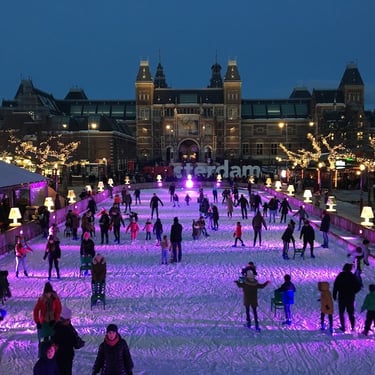
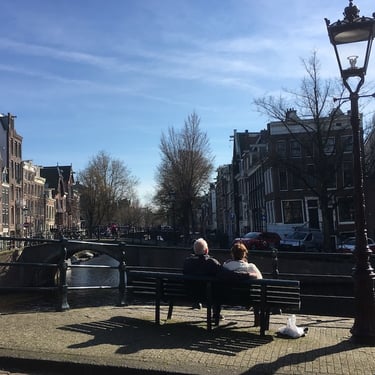
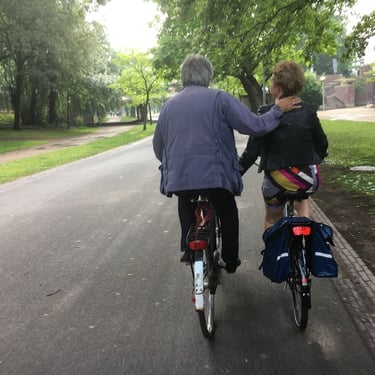
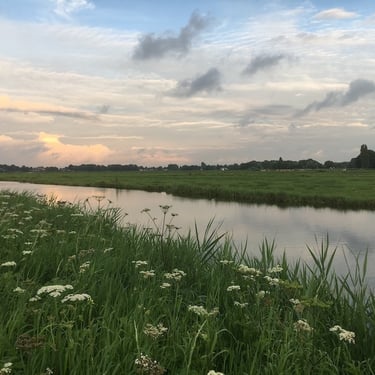
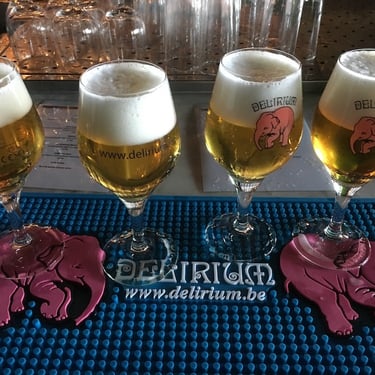
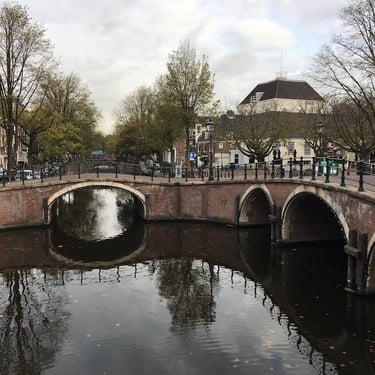
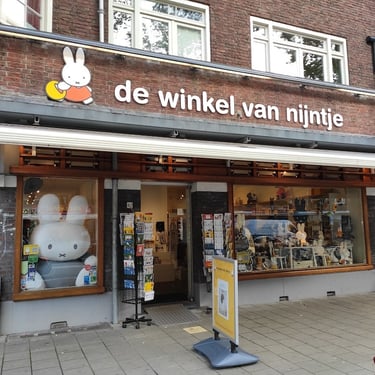
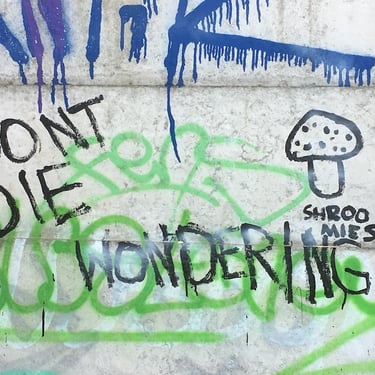
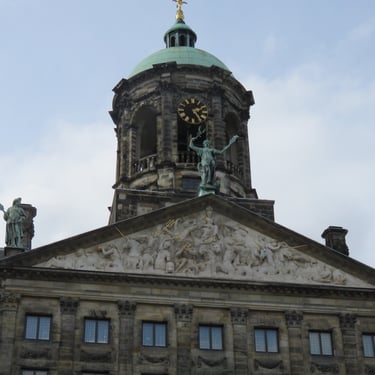
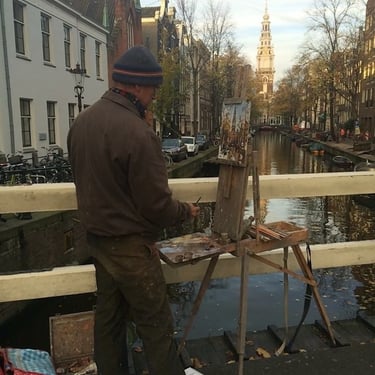
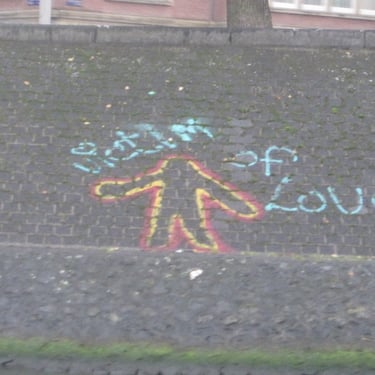
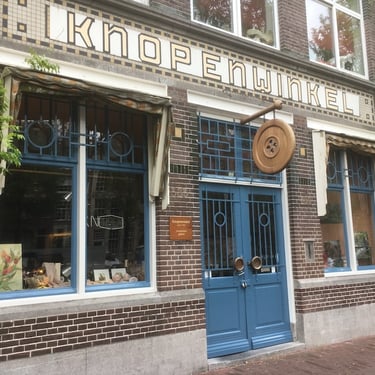
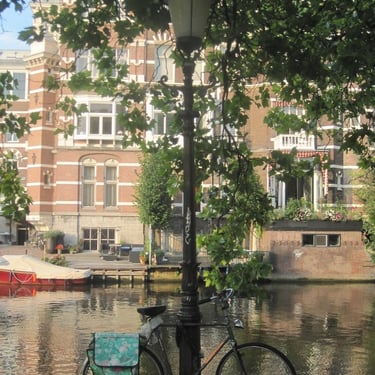
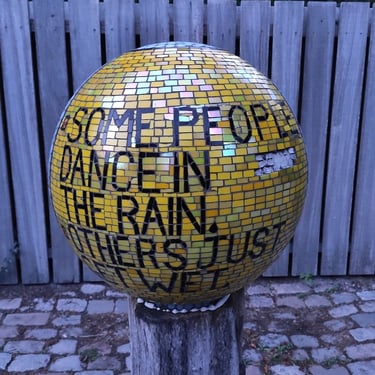
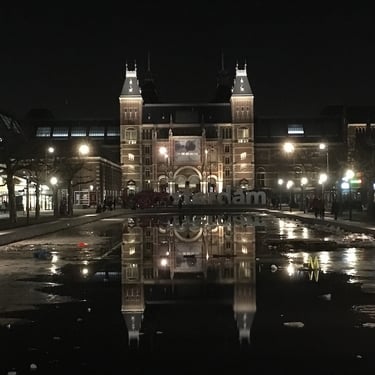
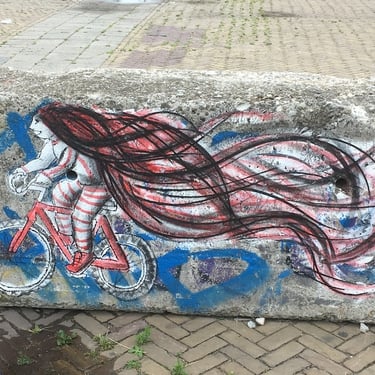
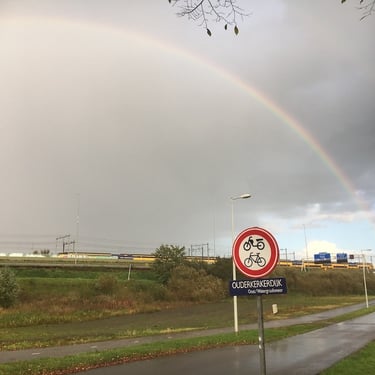
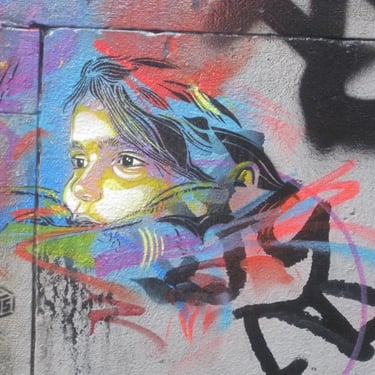
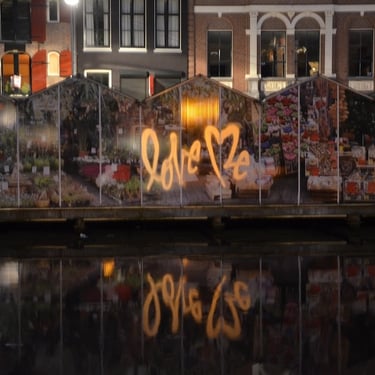
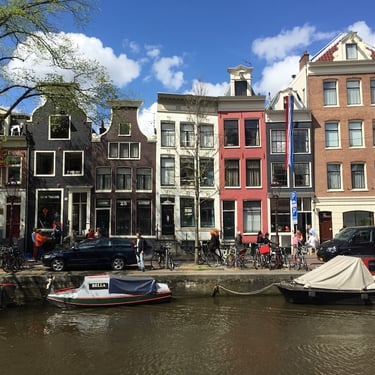
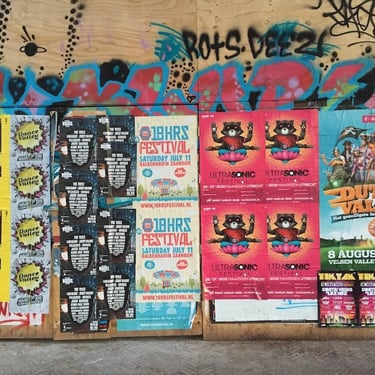
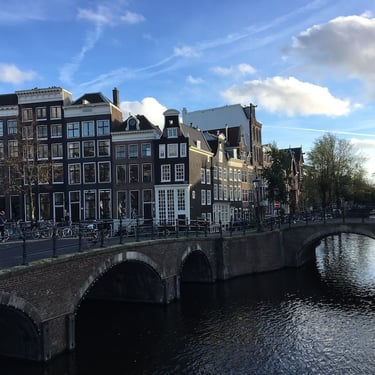
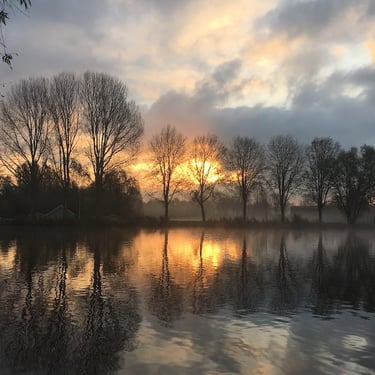
Amsterdam. It's 6pm on a Thursday. It's cold, dark, and wet ...and I'm pedaling as hard as I can, trying to keep up with my colleague as he glides around a corner on autopilot. I'm starting to catch up when my back wheel slips on the cobblestone. I clip the curb, swerve wide, and for a split second, the only thing between me and the cold, black bottom of the Prinsengracht is dumb luck and the faint hope that some bike lane paint...with the slightest of grip it may offer...will keep me on land.
The bike lane paint doesn't save me. A perfectly placed lightpost does.
This was two weeks into my life in Amsterdam — and my new job with Booking dot com. And my reintroduction to riding a bicycle, which I hadn’t done since I was a kid. A few days prior, I had bought a second-hand bike from a random guy on the street for 30 euros. A classic Dutch one with the black frame, cute curly handlebars — the kind you see everywhere here. What I didn’t realize at the time was that 30 euros is basically a neon sign flashing: this bike is stolen.
But anyway, there I was, wobbling through the February rain on a probably-stolen Dutchie, one second from a faceplant into the bottom of the canal, with a lightpost as my salvation.
That was my first taste of the real Amsterdam: a city that doesn't protect you, but dares you. It says: you’re free here — enjoy the weed, enjoy the women, enjoy the…waffles. Cut that cobblestone corner in the rain as fast as you want to. But can you handle it?
I spent two years here: grinding work by day, belly laughs and nonsense by night, and the kind of first-day-of-school wonder that never went away. At first glance, Amsterdam seems generous, handing you more rope than you know what to do with…like your old civics teacher who let you skip class and still gave you an ‘A’.
But sooner or later, its real question catches up to smack you like that canalside lightpost smacked me: What do you do when a city gives you freedom before you’ve earned the responsibility?
Welcome to EveryCity Whispers, where we explore the lessons cities teach us that you can’t learn in a weekend visit. I’m Steven, and Amsterdam — one of the many places I’ve called home — caught me, just before the canal did. But the lightpost that kept me dry wasn’t just dumb luck: it was Amsterdam’s first whisper. And that’s the story I’m here to tell.
***
"I’ve been living in the Netherlands over 8 years, and things I realize about being in Amsterdam is that you can be the truest version of yourself. You don’t have to pretend to be someone else to be liked or accepted. Just be authentic. People here really express themselves the way they dress, they behave, they talk, they look, and it’s just accepted as a society. It’s very liberating and free and it’s such an amazing feeling that you can be true to yourself."
"As a proud son of Rotterdam I feel most particularly equipped to comment on the nature of 'that other city.' Amsterdam is mosaic of people. From the first year sorority girl, fresh from the countryside, weaving her way through traffic on her bicycle, to your friendly neighborhood drug dealer, juggling his cellphone and an open can of Red Bull while barreling down a one way street on his juiced up fatbike. He's on his way to fuel the greed of Zuidas yuppies and the creativity of Hippies in De Pijp alike."
***
For a relatively small city, Amsterdam punches way above its weight in the music scene. Which is kind of funny, because, to me anyway, Dutch music — like Dutch food — isn’t exactly what I’d put on the brochure cover. But there’s great places to watch shows, and lots of artists from all over the world come. Paradiso is a beautiful venue…a converted church, where I’ve seen some of my favorite shows. But that’s not where I saw the one I remember most. That was Kendrick Lamar, at Ziggo Dome.
It was cold that night, raining (of course)...and windy. The kind of wet wind that makes you want to go back to wherever you came from. I’m at Booking’s “Freaky Friday,” this once-a-month open bar they’d host near all of the offices. On this particular evening, I was at the Delirium café next to the ferry terminal, and to paint you a picture: it’s me and some work mates trying to down as much Delirium Tremens as we can before we have to start paying again, hoarding glasses three-at-a-time back to our table like ants hauling crumbs back to the colony.
I knew Kendrick was in town, but tickets were long gone. A few beers in, my friend Alan grabs my phone and pulls up this Dutch resale site — like a local version of Craigslist — and I’ll be damned, there it is. A single ticket: mine. At face value, too!
The problem? Well, aside from Delirium being 8 and a half percent, the show starts in half an hour. And I’m on the wrong side of town, with a bicycle. Piet Heinkade to the Dome is way too far, and I can’t leave my bike where it is now…if I ever want to see it again.
So I do what every Amsterdammer does: I make the math work. Google says 28 minutes to my apartment, next to Zuid station. If I gun it, stash the bike, grab the Metro, I may only miss a song or two. So I take off.
The wind bites and whips raindrops into my face as my bicycle tires hiss on the wet pavement (by this point I’ve upgraded from my stolen starter bike…this one is still a Dutchie, but after my first wobbling wreck, it feels like a racehorse). My frozen fingers stick to the handlebars. My wet brakes barely work. But that 28-minute ride? I do it in 14. Partly adrenaline, partly thanks to a city designed for bicycles to flow like water through the canals.
So I get home, park the bike, run inside to swap out my soaking wet clothes, and grab a space cake from the kitchen…because, well....and book it for the Metro. The 50 train pulls up the second I hit the platform, and I pull up to Ziggo the second Kendrick hits the stage.
(sounds of the concert)
Between Kendrick’s energy, the lighting, and the chemicals kicking in at just the right time…it must have been amazing. My journal entry from that night says so. I don’t remember writing it, but apparently I spent the whole night talking to myself out loud about how it felt like I was watching myself watch the concert, like some hall of mirrors, Inception type of shit. And what a night that was…as much fun as any I can remember .
And that’s Amsterdam: You may feel like you’re one bad decision away from disaster, or one perfectly timed sprint away from magic…and it’s up to you to choose your fate.
It feels chaotic — and cold, wet, and windy — but really it’s discipline disguised as freedom. The guardrails are invisible, but they’re there: bike lanes, traffic flow, canals, and those annoying ringy bells — even though the bike isn’t slowing down for you. You feel free, but that freedom is engineered, conditional, and only as good as your ability to handle it.
And it’s not just the infrastructure. The people are built the same way. Dutch directness works like an invisible boundary. You don’t always see it coming, and as I quickly learned in a few early pitch meetings at Booking, it can hit hard — blunt, sudden, and without padding. But it’s there, to keep you upright before you slide a bit too far over the edge.
***
(Ted): Don’t worry, we gon’ get a ‘W’ soon. I’ll see you goldfish on Monday.
(Jan Maas): Goldfish?
(Colin): It means to forget our mistakes and failures and just move on.
(Jan Maas): But I didn’t make any mistakes. Only you played poorly.
(Sam): Guys, Jan Maas is not being rude. He’s just being Dutch.
"Old money you find in Old Zuid. Patrician families whose scions have dominated trade, media, and politics for generations. While the Jordaan might be called the Amsterdam of Amsterdam. Here is where you grow up sharp and quick because without your wits you'll end up as the butt of a joke before you made it across the street."
"I moved to Amsterdam a year ago, feeling somewhat unknown. I needed to be brave, and unknowingly, all it would take were four simple words: Hi, how are you? The openness of its people make you feel seen and welcomed. Amsterdam teaches you bravery. It’s woven into the fabric of the city from its deep history. You can see it today with the old ladies scolding kids on fatbikes to protest in Dam Square. It’s everywhere and in everyone."
***
Everyone not from here thinks Amsterdam’s freedom lives in its coffeeshops. Not like Starbucks — the other kind. Where the menu is laminated, half the strains sound like a gelato menu, and the rest sound like nightclub names.
The first time I went into one, I expected a stoner’s paradise of tourists with glassy eyes and backpacks taller than they were, Bob Marley on loop. And yes, those exist. But I wasn’t a tourist.
And Amsterdam locals — some of them go to coffeeshops, too. But they treat it like ordering a sandwich: pragmatic and efficient. In, out, on your way. My friend Helder would already have one foot out the door while I’m still standing there like an overeager American, poring over the menu like a wine list, knowing damn well I couldn’t tell a malbec from grape juice.
Marijuana is mainstream in America now, but at that time it was still a subculture. In Amsterdam, it was background noise, treated with a shrug that taught me way more about the city than smoke ever could.
Amsterdam doesn’t celebrate its vices. It doesn’t indulge. It manages them. Surprise surprise…weed isn’t actually legal in Amsterdam. But it isn’t illegal, either. It’s tolerated. Not praised, not condemned. It just is. Like mayonnaise on fries, or rain in the winter.
Living there was the first time I really noticed such a distinction between being allowed and being accepted. Amsterdam embodies this Dutch gray zone of tolerance that will let you do almost anything. But it won’t clap for you when you do it.
And believe me, some of my weekend shenanigans deserved no applause at all. I had a friend at Booking who shall remain nameless on this podcast — I’ll keep all the embarrassment for myself. Some Fridays after work we’d hit a bar, sometimes a club. But Amsterdam isn’t that big, and you’ve basically seen everything after a couple of months. Which means you either get really into road cycling, or you do what we did: get high and try to break the Internet.
We got into this routine of stopping by a coffeeshop after work — Boerejongens next to the Herengracht — I’m sure I’m butchering those… and heading back to one of our apartments. Instead of doing something productive or profound, or even remotely adult, we’d sit around, eat a space cake or two, and crank out Urban Dictionary definitions like idiots. For hours. When one got voted in…we’d celebrate like Ajax had won the Champions League.
I don’t remember most of what we wrote. I do remember which of my entries got accepted. That’s a secret I’ll take to the grave. But I just checked, and sure as shit, they’re still online, probably confusing some poor teenager in Kansas.
It was silly. Stupid. Completely unserious. And Amsterdam made room for it. It gave us the space to be ridiculous and go dumb, to wobble a bit, as long as we didn’t tip into the canal.
That’s freedom here. Not the wild, anything-goes kind. More like: we trust you to self-regulate. But if you can’t, we’ll quietly step in and handle it.
And it turns out, there’s a word the Dutch use that fits those silly nights perfectly: gezellig. Everyone translates it as “cozy,” but it’s way more than candles and warm rooms.
To me, gezellig is a reward for not going too far. For finding balance just long enough — despite our stupidity — to land in warmth. We were two tech industry geeks acting a third our age, laughing until our stomachs hurt, still safe inside the circle.
That’s the secret of Amsterdam’s tolerance. The city doesn’t clap for your foolishness, but it doesn’t cut you off, either. It just nudges you back upright, whispering ‘you’re free, but don’t screw it up’...and then catches with something warmer: belonging.
***
"Amsterdam teaches you it’s okay to be you. There’s a place for everybody in every skin. We celebrate that you can take pride in being you. From the 6 AM ravers bumping into sunrise chasers in Vondelpark, individuality and personality is embraced. It’s what makes you you."
"Down at the Bijlmer you see the consequences of decades of failed public policies. Impoverished citizens from the former colonies Surinam and The Antilles trying to make the best of a poorly dealt hand."
"I’m 34 years old, I’m from Amsterdam. Born and raised. My parents come from South America. Suriname, nice country, best food of the entire world. I think a lot of people come to the Netherlands for freedom, because the Netherlands is very tolerant. Smoking weed, being gay, going to do a bike tour through all of the Netherlands, selling raw fish…whatever. The Netherlands is very tolerant."
"It’s about efficiency. And also, there’s no hierarchical structure, especially in the corporate world. In the Netherlands, no matter if you’re analyst, if you’re senior management, if you work on the, I don’t know, board…it doesn’t matter how young or old you are. If you have a valid opinion or an idea, it’s always been respected, and they will listen to you. And it’s also vice versa, if the senior management says something that doesn’t make sense, and an analyst has a better opinion, you can always counter-argue these things. So I find it very interesting, that most of the organizations are really made flat organizations, in terms of hierarchy, and you’re able to express your opinion."
***
If Amsterdam has one day where the whole city lets go of the handlebars, it’s King’s Day.
See it once and you won’t forget it. Bright orange will be burned into your memory like you stared at the sun too long, because everyone’s wearing it. Not just shirts, but wigs, face paint…inflatable crowns.
The canals are jammed like a Tetris board, with boats adorned in Netherlands flags. People are shoulder-to-shoulder on the surrounding streets, beer in one hand, maybe both. Every square turns into a dance floor. Every boat into a floating frat house.
The city looks like a giant safety vest decided to throw itself a party on water.
On paper, it should be a complete disaster. Boats ramming into each other, drunk people hanging off bridges, and music blasting from ten directions at once.
But…it works.
I remember stepping onto a boat with some friends — Heineken in hand, the whole thing swaying to the beat of some house music blasting from a portable speaker. Not three minutes later, our boat was squeezed between two others. I could have kissed the total stranger on the other boat without leaning. A guy on my boat tossed a beer to someone two boats over. Random strangers were linking arms and singing. One guy was wearing a giant inflatable tulip hat jumping up and down like a Jack Russell.
But there weren’t any fights. No stampedes. Almost anywhere else, this much public drunkenness would mean sirens and cops. But Amsterdam trusts people to handle it themselves. And most of the time, they do.
It works because the city has invisible boundaries built into it. The boats all have rubber bumpers. The canals have crowd-control checkpoints. Police calmly sip coffee at the canal’s edge instead of shouting commands. Every now and then someone falls in, but there’s always a hand to pull them up.
It looks lawless, like a giant orange free-for-all, but it's orchestrated with precision. It’s centuries of the Dutch instinct for consensus — the same one that came from literally managing water together for centuries to keep the city from being flooded under. They call it the poldermodel. If you didn’t cooperate, your village flooded.
On King’s Day, that same unspoken consensus keeps the city afloat. It’s the poldermodel distilled into one massive party. Chaos, engineered just enough not to collapse.
And the feeling of King’s Day? It isn’t just wild indulgence, but something more connected. It’s strangers linking arms, passing beers. Singing songs nobody knows the words to, present in the madness, yet somehow also in the warmth.
It’s that word again —Gezellig — at city scale.
***
"Amsterdam, like its spiritual cousin New York, is convinced it exists at the center of the universe. All roads in the Cosmos lead to De Dam and when the aliens land, it will be most certainly for the pleasure of shopping at the Bijenkorf and have a sneak peak at the Red Light District. As they like to remind anyone from beyond the Ring Highway: Amsterdam's got it! To which I say, Rotterdam doesn't need it."
"Dutch people have a really big mouth. Big mouth, but more of a loud mouth. If Japanese are known for being a quiet and nonverbal people, imagine in the opposite spectrum. Dutch people always have an opinion, and regardless of whether their opinion matters or not in that situation, they always say something."
"And I would be remiss not to talk about Amsterdam and its weather. From its unpredictable patterns, its skies one moment like a moody teenager, then the next, elation and sunshine, like a winning goal scored in stoppage time. But time is too precious to sit waiting around just for sunny skies. We make the most of all weather, we make the most of every season."
"As there is even a saying about ‘go Dutch,’ people here can be very cheap. Even with it being, let’s say, a dinner with colleagues or you’re going to dinner with friends. People take it quite seriously and really precisely they look into what you have ate and drunk during the night, or whatever the scene is. They really try to split the cost in the way of how much you consumed. So, I was once, as an example, went on a date. And I had 3 glasses of wine. And I got the exact amount of wine I consumed on that night late that evening, to pay. Even there’s an app invented for it, which is called Tikkie, which basically you can fill in the amount and you can send a link to the person, and the person has to pay. It’s connected directly to your bank account. So it’s not a joke, it’s actually the case that Dutch people really…it’s one way of saying that they really look into the finances, but more of like, there’s no romance in there. So it can be something very interesting."
***
Amsterdam says “FREEDOM” in all caps on the marquee. Not the loud, too bold, American kind you find in New York. Not the pressured, coded kind in Tokyo. And not the improvisational kind of São Paulo.
Walk through De Wallen — the red light district — on a weekend and you’ll see it. The freedom advertised on the marquee — along with those narrow, crooked houses with grand facades you see on the postcards — is why the tourists come.
But living here, you start to see how those pretty facades hide functional inner courtyards.
Remember that bike accident two weeks into my Amsterdam life? My biking skills didn’t save me. The lightpost did.
And Amsterdam is full of lightposts. Some you see. Most you don’t.
They’re in the design — bike lanes and infrastructure built for flow. Canals that look great on postcards but were purpose-built for survival in a city below sea level that sits just 25 kilometers from the North Sea.
They’re in the culture — coffeeshops that shrug at your indulgence, tolerance that manages but doesn’t celebrate. Weed and prostitution aren’t tolerated because Amsterdammers think they’re cool. But because they are safer out in the open than shoved into the shadows — licensed, taxed, and tightly controlled.
They’re in the consensus — King’s Day chaos that somehow doesn’t collapse. Boats crash into each other, strangers spill beers on one another, but the whole thing flows. Because centuries of cooperation taught everyone where the edges are, and how to pull each other back when someone tips too far. And in an ironic way, everyone here treats the freedom to go insane for a day like a fragile gift.
That instinct runs deep, because for centuries, your survival here depended on your neighbors — if they didn’t show up to help repair the dike, your house flooded too. That’s where the poldermodel was born: the Dutch habit of debating, compromising, and keeping everyone in the room until agreement is reached. Consensus wasn’t philosophy. It was survival. And it still shapes how the Dutch govern, argue, and work today.
There’s lightposts in the honesty — Dutch directness that can feel cold until you realize it’s another form of functional infrastructure, and freedom— to skip the bullshit and test if the relationship is strong enough to stand. I remember going for a burger one night at Cannibale Royale in De Pijp, talking about something funny that happened at work. I’m here thinking I’m auditioning for standup, and my friend tells me straight out: that was boring. Not in a cruel way, definitely not sarcastic. Just matter of fact, like he was asking me to pass the bread.
Back home in the States, we’d dance around it — your friend would say ‘that’s funny’ without even looking up from his phone. But here, you get the plain truth, and this directness works like an invisible boundary that keeps you just enough in your place.
For expats or immigrants, that boundary is even clearer. You’re welcome, tolerated, maybe even liked. But deep circles are hard to penetrate. You’ll likely make tons of acquaintances but few close Dutch friends. And those you do have, there’s a good chance that when you’re at a group dinner together, even though everyone at the table is perfectly comfortable with English, they’ll still shout across the table to each other in Dutch. It isn’t coldness exactly, but a subtle hint that you’re still an outsider.
The consensus culture acts as a lightpost at work, too. At Booking we had a free buffet lunch, Freaky Fridays, and were free to experiment with anything we wanted to. It felt chaotic. Constant change. Thousands of versions of the website live at once. But beneath all that, a steady rhythm. Decisions never came from a loud voice, but from everyone ultimately nudging the ship in the same direction. No matter how many wild ideas we’d try to flood it with, the current always carried us back on course.
It took me a few months living in Amsterdam to start to realize that all of these seemingly random adventures I was having were actually connected. A sprint to Kendrick Lamar. Dumb nights getting high with Urban Dictionary. A national holiday painted orange. Being dissected in a boardroom my third week on the job at Booking, and told my story sucked over a burger.
I started to see that they were all part of the same story. The same lightposts, placed exactly where you need them.
Amsterdam whispers: You’re free here. But can you handle it?
If you can, and you can stay balanced on the rope the city hands you, the city catches you. With blunt honesty, tolerance, and even warmth. With unlocking the real reward: gezellig…the laughter around the dinner table after the blunt truths have already been spoken. It’s the circle you’re welcomed into once you’ve proven that you can handle your freedom.
And if you can’t handle it? The leash tightens. You’re nudged out, priced out, or quietly ignored. That’s the paradox: the leash is long, but tolerance doesn’t necessarily mean acceptance, and that tolerance has limits. Amsterdam gives you plenty of rope — but it won’t let you hang yourself with it. It’s more like a tightrope that you get to walk.
Freedom here isn’t infinite. It’s curated, managed…zoned like property.
When I arrived in Amsterdam, I thought freedom meant a free-for-all. No rules, no limits…do whatever the hell you want to. And predictably, it took me awhile to find my footing…at work, socially, wherever.
A lot of creative people talk about the power of constraints. Seth Godin tells a story about an unknown band called R.E.M., stuck in the mud, until each member forced themselves to swap instruments. Their next album, “Out of Time,” sold over 18 million copies. By making things harder, they made something better. Elan Lee, the game designer behind Exploding Kittens, says the same: creativity loves constraints. Tim Ferriss, Rick Rubin, Don Norman. I could go on and on.
But I didn’t understand any of this until I moved to Amsterdam. I thought I wanted to live outside the box, prided myself on it even, or at least wanted the biggest sandbox possible. But this city helped me understand how constraints don’t suffocate you, they focus you. Freedom only really works within boundaries. Once I understood that, I felt freer than I ever had.
Along the way, I became a lot more direct. Not Amsterdam-blunt, but I stopped sugarcoating, and started saying what I think. Now I live in Japan, where that doesn’t always go over well…but it makes my thinking clearer and my life simpler.
And while the Dutch directness hasn’t always translated well to Japanese culture, its patience for consensus has. I probably wouldn’t have survived a company in Japan, where patience is not optional, without those few years in Amsterdam as prep.
Some cities push you until you adapt. Amsterdam lets go of the wheel, and challenges you to steer. And that’s the real test here. Not whether you smoke, or bike, or dance in orange crowds. But whether you can take freedom, turn it into balance, and keep yourself upright.
That’s Amsterdam’s magic trick. It dares you to wobble…and on King’s Day, everyone does. But it keeps just enough structure to keep the whole thing from going overboard. Whether it’s coffeeshops, speeding bicycles, or a national holiday that basically legalizes anarchy for a day, the same whisper is there: You’re free here to live how you want to... but can you handle it?
I didn’t always handle it well, but I learned, thanks to Amsterdam’s lightposts…seen and unseen. They gave me direction and worked as constraints that didn’t box me in, but set me free. And maybe that’s the lesson worth carrying, wherever you live:
Freedom isn’t given. It’s managed, and Amsterdam dares you to manage it well.
If you can?
Amsterdam doesn’t just feel free. It feels like home. And more than that — it feels less like a city, and more like the greatest playground in the world.
***
"I think Amsterdam is an amazing and unique city in the world. So the city is known for having a very open minded and creative and forward thinking culture. And I guess this might have to do with us having to be creative and innovative in fighting the water which we are basically living in. And that innovative thinking, I think also in combination with the entrepreneurial spirit, even resulted in Amsterdam being probably the richest city of the world in the 17th century, during the Dutch golden age. So there’s a very rich culture, and nowadays that same culture attracts a lot of international business. And although Amsterdam has a population of less than one million people, it’s still recognized as, I think, a world city. It inhabits about 180 different nationalities, so I think that shows you that everyone feels welcome here. And well, I also strongly believe that with this diversity in the city it will help Amsterdam to keep and evolve their culture of openness and innovation."
"So I find it very efficient in the way that you’re not wasting time to just, you know, beat around the bush to get the point, but yet you can get really straight to the point."
"Amsterdam has taught me to be truly myself, to appreciate all that life brings, and to find happiness in both the silence and in the loud moments too. Amsterdam makes me feel known."
***
Hey guys, Steven here again. That’s it for Amsterdam.
I gotta say — as excited as I was to tell a story about Amsterdam, I was not excited about curating the music. I was super into the music from Tokyo, New York, and Sao Paulo…but I had always associated Dutch music with EDM, which to me just sounds like doing cardio. But my attitude was: who am I to judge? It’s their soundtrack, so it belongs here.
But as it turns out, I had a lot of fun with it! Not only did I learn that the awesome song from Reservoir Dogs was by a band from there, but I also found out there’s some EDM I…dare to say…kind of like! So I’ll take the about face on this one.
As always, every track you’ve heard in this episode came from local artists, so big thanks to them for letting me stitch their sounds into the story. I’ll put a Spotify playlist on the website and in the show notes with all the tracks.
Also to those of you who left me a voice note offering your take on Amsterdam: Thank you — your voices make these episodes come alive. And thanks to Rolf, my very first boss in Amsterdam and strangely enough my closest Dutch friend to this day, for a great conversation and for helping me kick around some ideas.
And finally, I appreciate you, yes you, for listening. This is all still an experiment, so if you’ve got thoughts, feedback, or people I should talk to in your city, hit me. Steven@everycitywhispers.com — Steven spelled correctly with a “v”.
If you liked what you heard, please rate, comment, share it with a friend. It helps more than you know. I’m having so much fun doing these, but of course I also want to reach other people who are curious about the world, and it’s way more fun doing it when I know I’m connecting with someone.
You can find a transcript and more about this episode — and all the others — at everycitywhispers.com.
Thank you, thank you, thank you for listening to EveryCity Whispers. Next, I’ll be diving into Dubai.
And until then, remember: you don’t have to move cities to move yourself forward. Cities don’t shout, they whisper. If you stay curious and listen closely…you’ll hear them.
***
TRANSCRIPT
EVERYCITY WHISPERS
KNOW THE WORLD. KNOW THYSELF.
CONNECT
© 2025-2026. All rights reserved.
